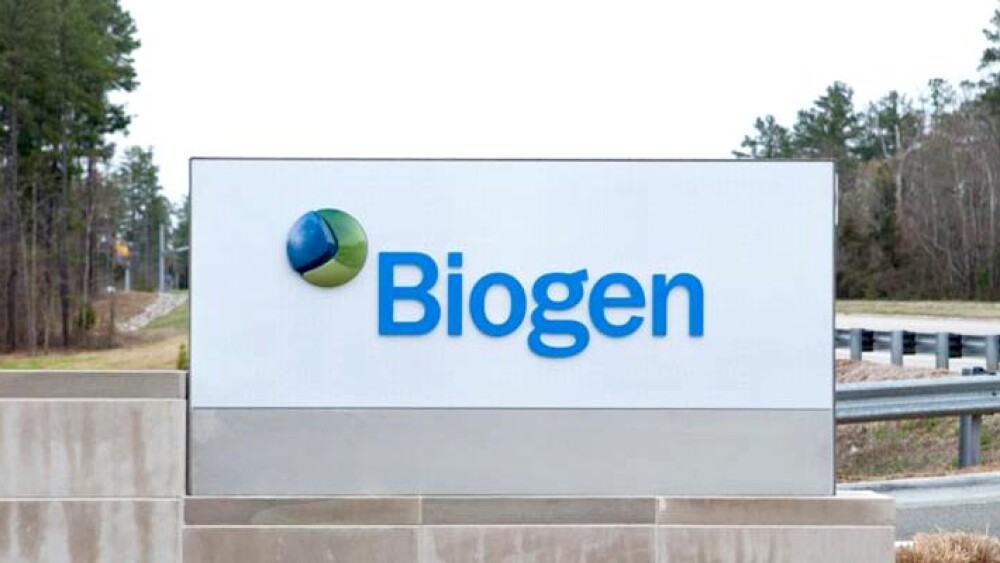July 21, 2016
By Mark Terry, BioSpace.com Breaking News Staff
There’s something to be said about leaving on a high note. Along with better than expected financials, Cambridge, Massachusetts-based Biogen announced today that it’s chief executive officer, George Scangos, will be leaving the company as soon as his replacement is found.
Biogen reported second quarter results, with total revenues of $2.9 billion, up 12 percent compared to the same period in 2015. It was driven primarily by global revenues from its multiple sclerosis (MS) and hemophilia products. Like everyone else, foreign exchange had a negative impact on total revenues, in Biogen’s case, about $44 million compared to the same period last year. GAAP net income was $1 billion, up 13 percent from the second quarter last year, with GAAP diluted earnings per share (EPS) rising 22 percent from last year, an increase of 22 percent.
“During the second quarter we saw solid performance across our commercial business, as a growing number of patients benefitted from our broad MS portfolio, hemophilia therapies, and recently launched biosimilar,” said Scangos in a statement. “Revenue strength coupled with thoughtful management of expenses helped drive healthy earnings growth for the quarter. As a result, we have raised our financial guidance for the full year. Our Board has also authorized a $5 billion share repurchase program. We believe this allows us to return capital to shareholders, while leaving ample room for strategic flexibility.”
The company’s MS leader, Tecfidera, brought in $987 million in the quarter, an increase over the first quarter’s $946 million. Its two hemophilia medications, Electate and Alprolix, brought in $125 million and $80 million, respectively.
Scangos has been with the company six years. Prior to joining Biogen, he was the chief executive officer of Exelixis . At the time he took over in 2010, Biogen had been fighting investor Carl Icahn over its strategic direction and had been in a six-year lull in having drugs approved by the U.S. Food and Drug Administration (FDA). But Icahn unloaded his Biogen stake and Scangos made numerous changes, including shuttering its San Diego research facility, trimming staff, moving headquarters to Cambridge, and changing overall strategy. He also stopped the company’s focus on cancer and cardiovascular disease, refining its focus on neurological diseases.
The Tecfidera program was already underway when he took over, but the drug received FDA approval in 2013, catapulting the company to dominance in the MS market.
“George joined Biogen at a very challenging time,” said Biogen chairman Stelios Papadopoulos, in a statement. “He reorganized operations and he oversaw the enrichment of our product pipeline and the launch of several products. In short, George did an outstanding job and I believe he is leaving the company well positioned for success.”
Scangos is also noted for gambling on longshots, notably his November 2015 shift toward Alzheimer’s disease, a notoriously difficult arena. It was also the period of the so-called “Biogen Bombshell,” when in October 2015 the company announced it was cutting 11 percent of its staff and slashing several pipeline programs, despite a rise in third-quarter financials of 11 percent.
Writing for Xconomy, Ben Fidler says, “In January 2015, Biogen shares were at over $400 apiece as the company was gaining steam on early positive signals for aducanumab. Shares have since eroded significantly, but Biogen has restructured and cut a number of jobs to support its risk-heavy investments, halting preclinical work in immunology and fibrosis.”
In May, Biogen underwent some tumult. First, it announced that it was spinning off its hemophilia unit into a separate, independent, publicly-traded company, which will be run by Biogen’s executive vice president of Pharmaceutical Operations & Technology, John Cox. Second, the company’s executive vice president, strategy and business development, Adam Koppel, left the company to rejoin Bain Capital.
And more problematic was the failed clinical trial in June of its opicinumab (Anti-LINGO-1), a drug the company hoped would repair the nerve damage caused by MS. Despite all the relatively good news in today’s second-quarter financial report, when the trial failed, company stocks dropped from $289.84 on Monday, June 6 to $252.58 on June 7, losing almost $8 billion in market value. Shares are currently for $277.90.
The company indicates it is beginning its search for Scangos’ replacement immediately.





